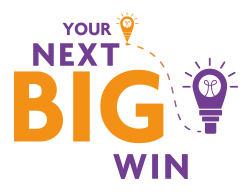Distractions lurk around every corner. How do we ensure we stay focused, especially in a work environment? With emails pinging, phones ringing, and a cascade of tasks demanding our attention, it’s easy to lose our way. Join us for this deep dive into the world of focus and distraction.
The Contemporary Quandary
Our current environment is buzzing. Phones, emails, and the ever-pervasive internet all fight for our attention. Keeping our attention pinned on one task is almost an Olympian feat. Hence, our article here revolves around understanding these distractions, which we lovingly term as ‘fads’, and how to manoeuvre around them.
A Historical Perspective on Distraction
Distractions aren’t just a modern phenomenon. Take, for instance, Hugo Gernsback‘s invention from 1925 called ‘The Isolator‘. Designed to enhance focus by blocking external distractions, this helmet-like device, complete with eye holes, was unfortunately not the silver bullet Gernsback hoped it would be. He soon discovered that most distractions were self-generated, popping up from his own thoughts and feelings.

Internal Vs. External Distractions
The world might blame our current digital age for most of our distractions, but it’s essential to remember that the human psyche has been dealing with distractions for millennia. While digital distractions like social media do play a part, a considerable portion of our distractions come from within us. This internal tug-of-war has evolutionary roots, where our brains evolved to focus on immediate, short-term tasks rather than long-term objectives.
The Cost of Distraction
Distractions can be expensive, both in terms of time and productivity. Studies suggest that companies can lose significant profits due to employee distractions, with some workers interrupted multiple times a day. These interruptions not only derail productivity but also take a considerable amount of time to regain focus.
Multitasking: Myth or Reality?
While many pride themselves on their multitasking abilities, research suggests otherwise. Our brains don’t truly multitask; instead, they switch between tasks rapidly, often reducing overall efficiency.
Deep Work: The Solution?
Cal Newport’s book “Deep Work” suggests that the key to productivity in this age of distraction is a deep, focused approach. Instead of skimming the surface, we must dive deeper into tasks and subjects to truly understand and produce quality work.
Meditation: A Path to Focus
One proven method to enhance focus and reduce distractions is meditation. Just 10 minutes a day can lead to improved concentration and clarity. Especially when combined with physical exercises, meditation can create a state of mindfulness that boosts productivity for hours.
While distractions are inevitable in our modern world, with self-awareness, discipline, and the right tools, we can navigate our way to better focus and greater productivity. Whether it’s embracing the art of deep work, incorporating meditation into our daily routines, or simply being more mindful of our internal distractions, there are paths available to help us stay on track.
Navigating the Modern World: A Deep Dive into Distractions and Solutions
Distractions at Work
- Interruptions from Colleagues: From a coworker wanting your immediate attention to others inviting you to take a break, distractions from colleagues are a constant challenge in the workplace.
- Phone Calls and Messaging Platforms: Although traditional phone calls may have diminished in frequency, the advent of messaging platforms like WhatsApp and Messenger has brought a new form of interruption. From clients reaching out via LinkedIn Messenger to casual chats on other platforms, there’s always something vying for your attention.
- News Alerts: With the rise of real-time news alerts, our devices constantly ping us with the latest headlines. Gone are the days when people would wait for the 10 o’clock news; today, we are inundated with updates round the clock.
- Environmental Distractions: Both good and bad weather can become distractions. Good weather tempts one to go outside, while adverse conditions like thunderstorms can disrupt utilities, like Wi-Fi.
- Mental and Emotional Distractions: Personal worries, such as concerns about cash flow, tensions with colleagues, or the anxiety of an upcoming presentation, can greatly distract one from tasks at hand.
- Physical Distractions: Feelings of hunger or tiredness, dehydration, and even a plethora of ideas can divert one’s attention from their primary task.
Coping Mechanisms
- Limit Alerts: Dedicate specific times of the day to check your emails, messages, and other notifications. Designate a particular communication method for urgent matters.
- Reframe Tasks: Change your perception of tasks. Instead of viewing them as tedious, see them as steps towards a positive outcome.
- Break Tasks into Manageable Chunks: If you find certain tasks daunting, break them down into smaller, more manageable tasks. This allows for better focus and quicker accomplishment.
- Stay Present: Concentrate on the task at hand instead of getting lost in the myriad of other things that could be done.
- Reconnect with Nature: Taking walks and immersing yourself in nature can be reenergizing and refreshing.
- Prioritize Sleep: Good sleep provides clarity, boosts productivity, and aids in better decision-making.
- Address Worries Head-On: If something is bothering you, either journal your feelings or discuss them with someone. Create a plan to address genuine concerns.
- Meditation: Finding a few moments to meditate can help clear the mind. Whether you opt for open meditation, where you allow thoughts to flow freely, or focused meditation, where you concentrate on a single element, both can offer relief from the constant hustle and bustle of daily life.
- Eat the Frog: Address the most daunting task first thing in the morning. Completing it will give you a sense of accomplishment and motivate you for the rest of the day.
The modern world, with its myriad distractions, requires a unique set of strategies to navigate. By identifying disruptions and implementing these coping mechanisms, you can stay productive and maintain a balance to achieve your next big win.
